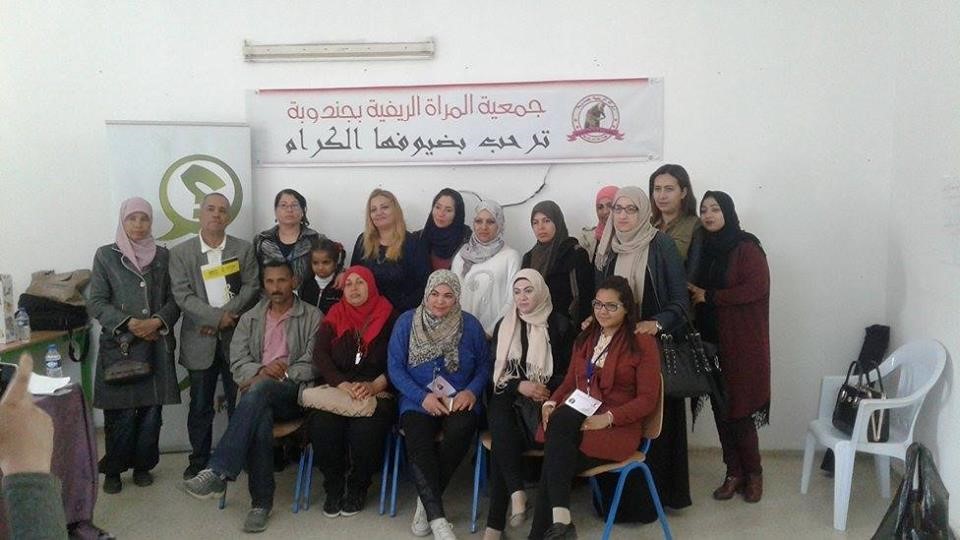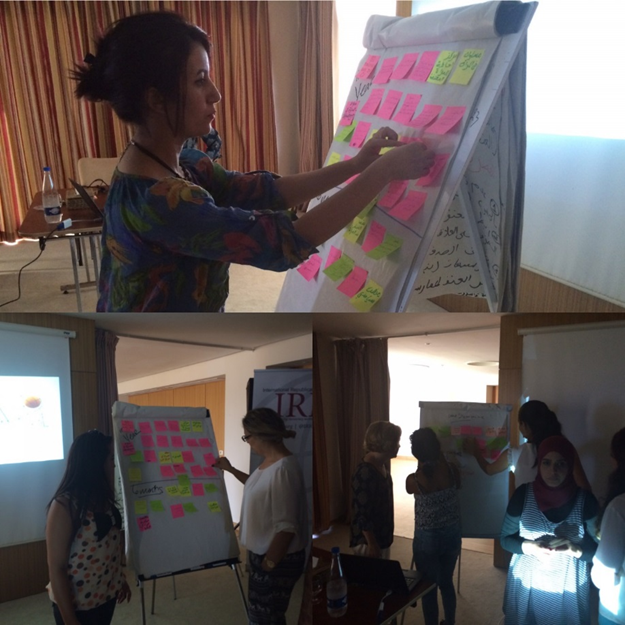Our Work in Tunisia: 10 Months, 21 Public Forums, 502 People, 1 Law

“What do you do?” By now, every D.C dweller is used to this question and most likely has a go-to answer. For the Democracy and Governance (D&G) world, though, the question has become a bit more loaded.
In tight financial times, when every dollar spent is being even more closely watched, implementers are having to justify the value and need for development assistance. Frankly, it makes sense – if Congress, and thus taxpayers, are supposed to be funding democracy-spreading programs abroad, the average taxpayer wants to know money is being well-spent and not squandered. From the D&G perspective, however, this calls for a moment of pause. As programs look inward to analyze the value of their work, or the “outcomes” and “impact” as the Monitoring & Evaluation folks like to call it, demand for “success stories” and “program highlights” rises.
As part of the Tunisia team, I look at the small but mighty North African country and ask myself: “Ok, what results HAVE we achieved there?” Well, we have trained over six political parties in campaigning, public speaking, and communications. We have worked with Tunisian ministries to improve their internal and external communications and, most importantly, we have worked with Tunisian citizens. We have helped civil society strengthen its ability to advocate to decision-makers to promote citizen interests. While to me, this all sounds great, this answer is no longer enough.
What is good enough is the creation of policies that are responsive to citizen concerns, take into account citizen voices and provide a comprehensive solution to citizen problems. A clear instance of such participatory governance is Tunisia passing its first national law to combat violence against women on July 26, 2017. This historic legislation, which combines preventative measures for violence against women and support for survivors and also adopts a broader vision of what constitutes violence, is a clear victory for Tunisia in its fight to protect women.
Through our work with the Ministry of Women, Family and Childhood and civil society, IRI’s impact on the adoption of this law is evident. IRI began supporing civil society and the ministry of women on this initiative back in September 2016. It all started at a workshop with civil society members and colorful sticky notes to determine priority women’s issues. Since then, IRI has worked closely with Tunisian civil society across the country, including its network of civil society organizations Min Haqi Nsaalek (It is my right to hold you accountable), hosting workshops and roundtables to raise awareness on the draft law and invite discussion and debate on how to improve it.
In total, IRI and Min Haqi Nsaalek hosted 21 round tables and public forums, reaching over 502 people (309 women) in the presence of 13 Members of Parliament and representatives from the Ministry of Women. Ten months later, Tunisia now has one national law to combat violence against women, which includes 25 of the recommendations developed during these events. And that is what IRI does.

Top